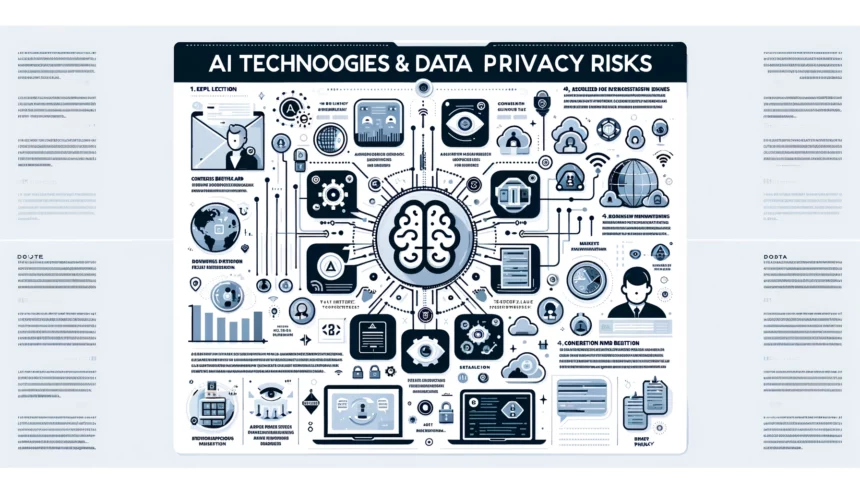Artificial Intelligence (AI) has sparked a frenzy of excitement among both consumers and businesses, fueled by the hope that technologies such as Large Language Models (LLMs) and ChatGPT will revolutionize the ways we study, work, and live. However, much like the internet in its infancy, individuals are diving headfirst into these technologies without fully considering how their personal data is utilized, and the potential implications for their privacy.
The AI sector has witnessed numerous data breaches. Notably, in March 2023, OpenAI temporarily disabled ChatGPT due to a significant error that allowed users to access the conversation histories of others, exposing payment details including names, email addresses, and partial credit card numbers. September 2023 saw a colossal leak of 38 terabytes of Microsoft data, raising alarms over the potential for malicious attacks on AI models.
Instances where researchers manipulated AI systems to divulge confidential records have also been documented. A team named Robust Intelligence, within hours, managed to extract personally identifiable information from Nvidia software, highlighting the vulnerabilities in these technologies. These incidents underscore the pressing challenges that need addressing for AI to be deemed reliable and trustworthy.
A concerning revelation is that conversations with AI bots, such as Google’s Gemini, are reviewed by humans, indicating a lack of transparency. Users are cautioned against sharing anything they would not want to be reviewed or utilized, emphasizing the privacy risks involved.
AI’s scope is expanding, being increasingly relied upon for sensitive discussions and processing a wide array of personal data. This evolution calls for reflection on the three pivotal data privacy challenges facing AI today:
1. Prompts Aren’t Private: AI systems like ChatGPT store conversation histories to enhance user experiences and train LLMs. However, this poses a privacy risk, as hacks could expose sensitive user information. High-profile companies have restricted the use of generative AI tools among employees to safeguard intellectual property, highlighting concerns beyond data breaches, including the potential repurposing and public distribution of entered information.
2. Custom AI Models Lack Privacy: Although custom LLM models offer organizations the opportunity to develop tailored AI tools, the privacy of these models is questionable when operating on platforms like ChatGPT. There’s a lack of clarity on how data is used to train these systems and the potential for personal information to contribute to future models, raising alarms over the security of such data.
3. Private Data Training AI Systems: The vast amount of data used to train AI systems often includes content from sources where individuals might expect privacy. The reliance on AI across various apps and tools, from facial recognition to content recommendation algorithms, necessitates greater transparency and accountability from AI startups and established players alike.
Where Do We Go from Here?
AI’s impact on our lives is undeniable and growing. However, the pace at which the technology is advancing poses challenges for regulation and underscores the importance of individual data security measures. Decentralization could be a game-changer, offering a way to safeguard personal data from major platforms. Initiatives like decentralized physical infrastructure networks (DePINs) and privacy preserving LLMs promise more personalized outcomes while ensuring users maintain control over their data.
In conclusion, as AI continues to weave into the fabric of daily life, the conversation around data privacy becomes ever more critical. It’s not just about navigating current challenges but also about anticipating future issues and ensuring that the benefits of AI do not come at the expense of our privacy and security.
















